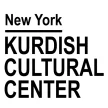 Bachtyar Ali, The Last Pomegranate Tree, translated from the Kurdish (Sorani) by Kareem Abdulrahman (Brooklyn, N.Y.: Archipelago Books, 2023). Fiction.
Bachtyar Ali, The Last Pomegranate Tree, translated from the Kurdish (Sorani) by Kareem Abdulrahman (Brooklyn, N.Y.: Archipelago Books, 2023). Fiction.
Discussed at our Book Club on January 2, 2023
Bachtyar Ali, born in 1960 in Silêmanî, studied geology at the University of Silêmanî and later in Hêwler. During a protest against the Ba’ath regime, he was injured and thereafter shifted his interest to literature. Over time he became a novelist, critic, essayist, and poet. He has lived in Germany since the mid-1990s. His novel I Stared at the Night of the City is said to be the first Kurdish-language novel published in English translation, in 2017.
The Last Pomegranate Tree, written in 2002, was published in English in January 2023. Bachtyar Ali writes in Sorani. Some book club members found the novel disorienting at first, as it begins with two different stories told by two different narrators. To others, the language seemed frustratingly repetitive.
Sorani storytelling can well sound that way to Anglophones. More indirect than English, the language seems more suggestive and metaphorical than concrete. The several narrators are only the beginning of the issue, as in this novel identities shift: the two main characters, Muzafar and Yaqub, are distinct, even opposites, yet sometimes they seem to merge and become one, like two halves of a whole. Elsewhere in the novel we meet two indistinguishable sisters; three youths all bear the same unusual name, Saryas, meaning ”human.” The three Saryases, in this world of fluid identity, are also sometimes metaphorically one, then sometimes represent an entire people devastated by war and revolution, tortured under Saddam Hussein. All are damaged in some way, as if they were three facets of the injured author’s personality.
Moreover, the story isn’t told in a linear fashion–it loops around, backward and forward in time, in circles or a spiral. Thoughts, musings, and descriptions are repeated, in poetic language that can sometimes evoke a bedtime story. The novel’s world resembles the magical realism of some Latin American fiction, mixing dreams and reality. Except that here, dreams and reality also explicitly exist in two cosmological realms, joined to each other by the pomegranate tree. Characters have heightened powers: Muzafar’s intense psychological experience of spending 21 years in the desert has left him an intense philosophical outlook; the two sisters in white sing ethereally all night long; the boy Muhammad, fascinated by secrets, has a heart of glass and, when he dies, shatters into dust.
A grand theme is disappointment with the concept of revolution, as individuals rise to power and become corrupt. War and revolution are what cut off Muzafar and Yaqub from their infant sons and left both men empty inside. Long struggles result in nothing but loss. Revolution is a lie. “The desert and politics are the same,” Ali writes, “—they are both lands where nothing grows.” Since society cannot be changed, a philosophical issue arises: how much to isolate yourself from the corrupt world—if you emerge, you will be dirtied. Given that society is corrupt, Ali makes the Voltairean choice to tend to his own garden.
Read more about Bachtyar Ali here.
The book is available for purchase from Archipelago Books.















